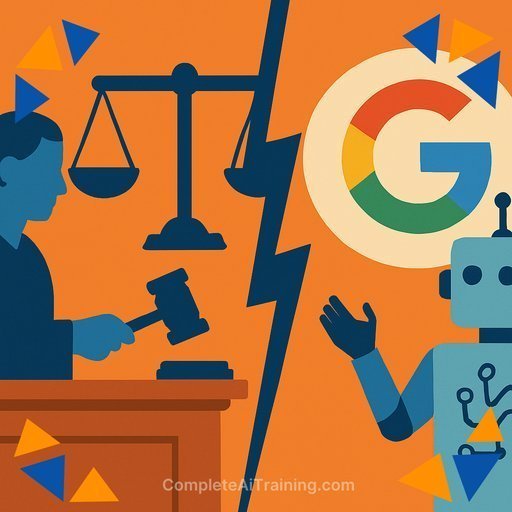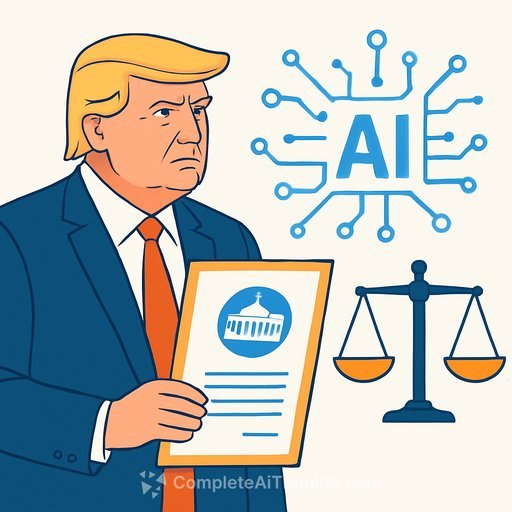AI Summaries Now Shape How We Shop and Search
Two signals point in the same direction: AI is moving to the front of product research and search. Amazon is using AI to condense review insights for shoppers. Google is placing AI summaries at the top of results - and facing legal pushback.
Amazon's "Hear the Highlights" Puts AI Between Shoppers and Reviews
Amazon expanded its AI-voiced product highlights to all users, after initial tests earlier this year. The pitch is simple: skip thousands of reviews, get the gist fast.
There's clear utility - no cognitive overload, faster decisions. But trade-offs are real. "It's important to recognize where AI is currently strong, such as in automation and pattern recognition, and where it still falls short, like in judgment-heavy tasks," said Ankur Edkie, CEO of Murf AI. He added the key is "problem-capability fit," or it risks feeling like a gimmick.
Summaries can flatten the edge cases. "AI might overlook unique insights or niche needs that don't align with the majority of responses," said Brian Numainville of Feedback Group. Nauman Dawalatabad, a research scientist at Zoom, sees the upside: less mental fatigue and time wasted combing reviews.
Practical takeaways for shoppers
- Use summaries as a starting point, then scan a handful of recent 1-star and 3-star reviews for edge cases.
- If you have niche requirements (fit, region, accessibility), search within reviews for those terms to counter majority bias.
- Check how current the summary feels; products with frequent updates can drift from older consensus.
Practical takeaways for brands and product teams
- Structure review prompts (use cases, environment, sizing, platform) so AI can pull context, not just sentiment.
- Tag and surface outliers (e.g., "works with Linux," "small hands," "humid climate") so they don't get lost in averages.
- Track shifts: did conversion change after summaries appeared? A/B test how specs or FAQs influence AI-highlighted themes.
Google's AI Overviews Face a Publisher Lawsuit
Google's AI Overviews, introduced in May 2024, place synthesized answers at the top of search results. A lawsuit from Penske Media argues these summaries use publisher content without consent and reduce traffic. The filing says Google's dominance in search lets it set terms that disadvantage original content.
Google's position: AI Overviews improve the experience and send traffic to a range of sites, and it plans to contest the claims. The case joins broader friction between AI systems and rights holders, including recent high-profile copyright settlements.
For context on how Overviews work, Google's public explainer outlines when and why summaries appear in results. See Google's overview here: Google Search: AI Overviews.
Implications for SEO, content, and growth teams
- Expect more zero-click behavior. Model the impact of Overviews on your critical keywords and top-of-funnel traffic.
- Differentiate beyond what a summary can replicate: unique data, tools, calculators, communities, and fresh research.
- Tighten structured data and on-page clarity; ambiguous pages are easier to compress into generic answers.
- Monitor attribution: track which queries still send clicks and which are satisfied by Overviews, then adjust content bets.
Guidance for engineering and AI teams
- Build observable pipelines for any summarization you deploy: source tracking, outlier detection, and human-in-the-loop escalation for judgment-heavy tasks.
- Expose context interfaces to your summarizers (schemas, taxonomies, product attributes) to reduce bland generalization.
- Log provenance. If models synthesize third-party content, keep clear records for compliance and takedown workflows.
Bottom line
AI summaries will sit between users and source material more often. They save time, but they flatten nuance. If you shop, scan the summary, then check a few specific reviews. If you build or publish, structure your data, protect your edges, and measure how AI intermediaries affect discovery and trust.
Level up your skills
If you want hands-on training for building responsible AI features and adapting search/SEO strategies, explore curated programs here: AI courses by job.
Your membership also unlocks:






